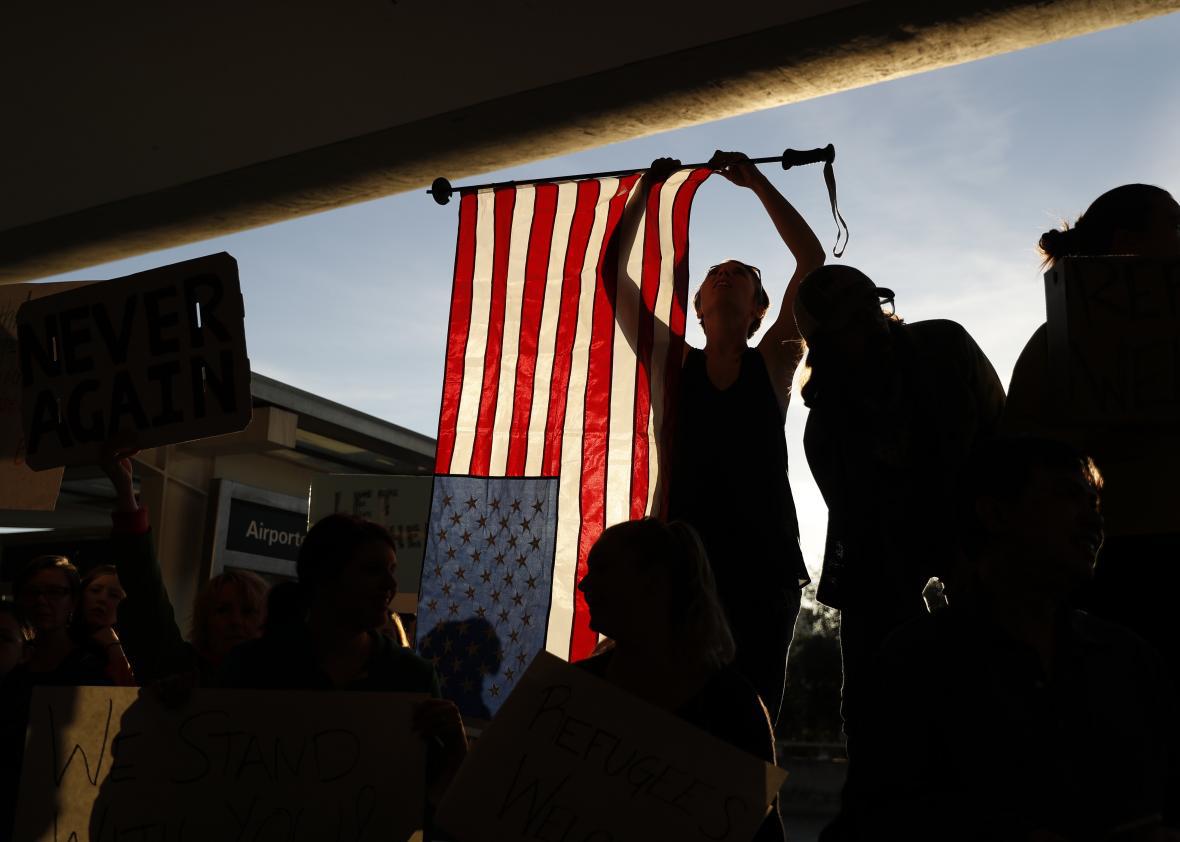First came the law professors, saying President Trump could not strip sanctuary jurisdictions of federal funding.
Then came the mayors and attorneys general, saying Trump could not strip sanctuary jurisdictions of federal funding.
Then came lawyers from the president’s own Department of Justice, saying Trump could not strip sanctuary jurisdictions of federal funding. (Their primary defense in court was that the order didn’t actually change existing law regarding grants and sanctuary cities.)
Finally, on Tuesday, in response to a suit brought by the City of San Francisco and Santa Clara County, came the nationwide injunction from a federal judge sitting on a peninsula in the Pacific Ocean, saying Trump could not strip sanctuary jurisdictions of federal funding.
We’ve known for months that the section of the president’s January order making sanctuary jurisdictions “not eligible to receive federal grants” would be unlikely to stand up in court, for a few reasons that Judge William Orrick III, an Obama appointee presiding over the U.S. District Court for the Northern District of California, laid out on Tuesday:
The Constitution vests the spending powers in Congress, not the President, so the Order cannot constitutionally place new conditions on federal funds. Further, the Tenth Amendment requires that conditions on federal funds be unambiguous and timely made; that they bear some relation to the funds at issue; and that the total financial incentive not be coercive. Federal funding that bears no meaningful relationship to immigration enforcement cannot be threatened merely because a jurisdiction chooses an immigration enforcement strategy of which the President disapproves.
Over the past month, though, there’s been a slight twist. We learned that the president’s lawyers essentially agree with that interpretation, and argued in court that the January order was intended to be largely symbolic. (Or in the judge’s words, an “ominous, misleading, and ultimately toothless threat.”) It might not cost San Francisco a dime, the DOJ attorney had told the court. It only affected grants that were already subject to compliance with federal immigration law, reiterating a power that the Department of Justice already had. It was really more of a “bully pulpit” document for an issue near and dear to the president’s heart.
There were two problems with that argument, the judge wrote on Tuesday. First, the order contains no qualifier on “federal funding,” and is not “reasonably susceptible to the new, narrow interpretation.” Second, as I wrote last week, Trump and company did that thing again where they talk a big game and undermine their own lawyers in the process. It’s a recurring theme for the movie villains at 1600 Pennsylvania Avenue:
In some ways, the dispute recalls the Trump’s problem with his second travel ban: Just as lawyers were attempting to argue the second ban was substantively different than the first, Trump and co. were telling supporters and the press they were exactly the same. A similar contrast emerged in how the administration addressed the president’s baseless claims of widespread voter fraud in court.
The judge agreed, citing statements by the president, White House Press Secretary Sean Spicer, and Attorney General Jeff Sessions. “If there was doubt about the scope of the Order, the President and Attorney General have erased it with their public comments,” the injunction reads. D’oh!
